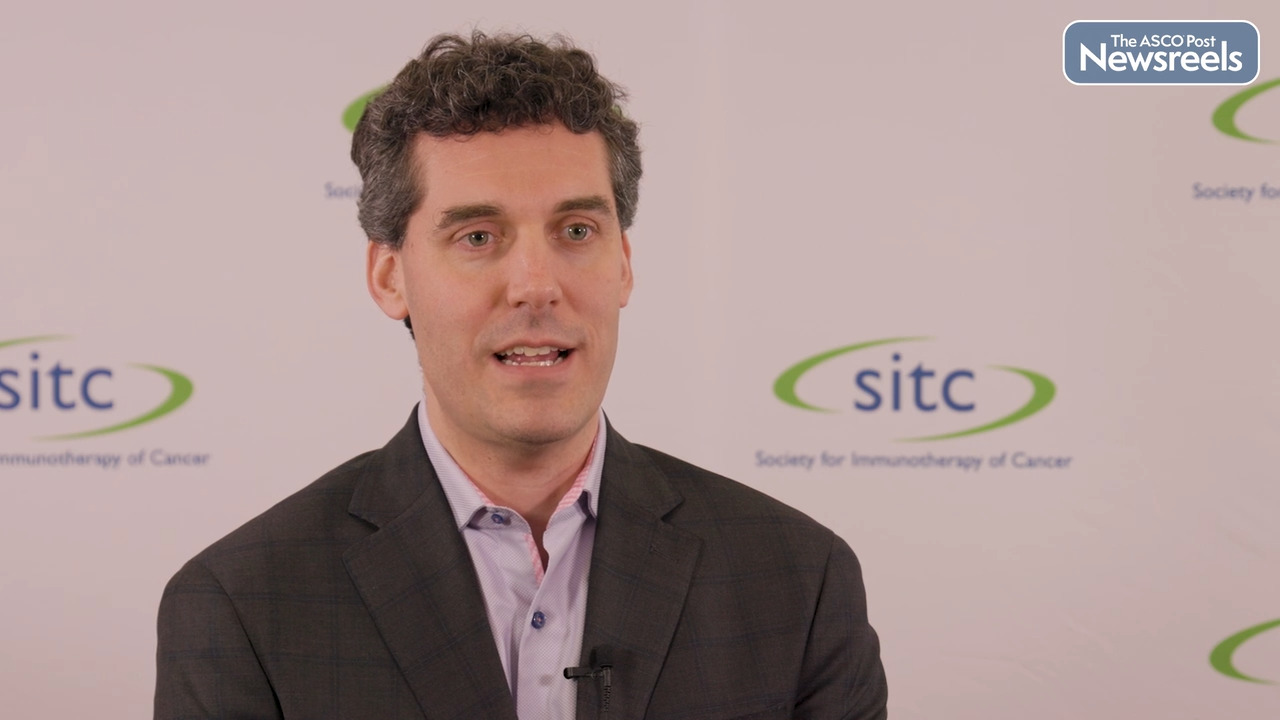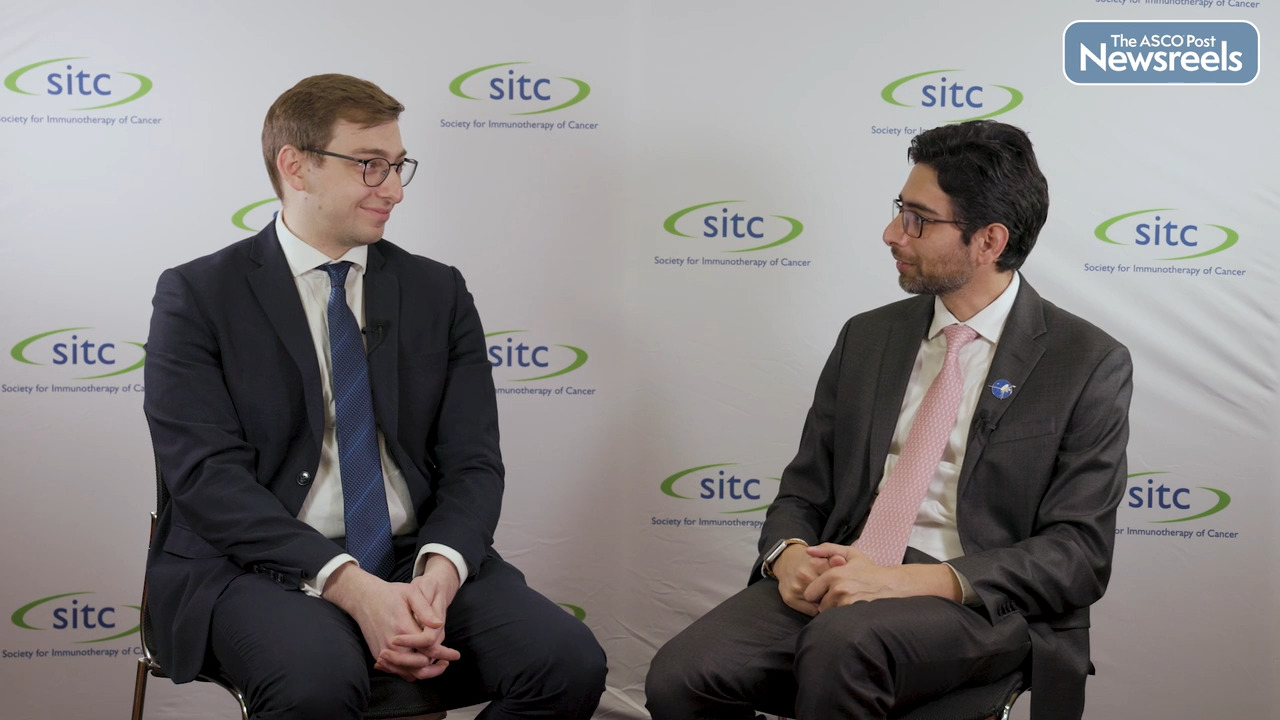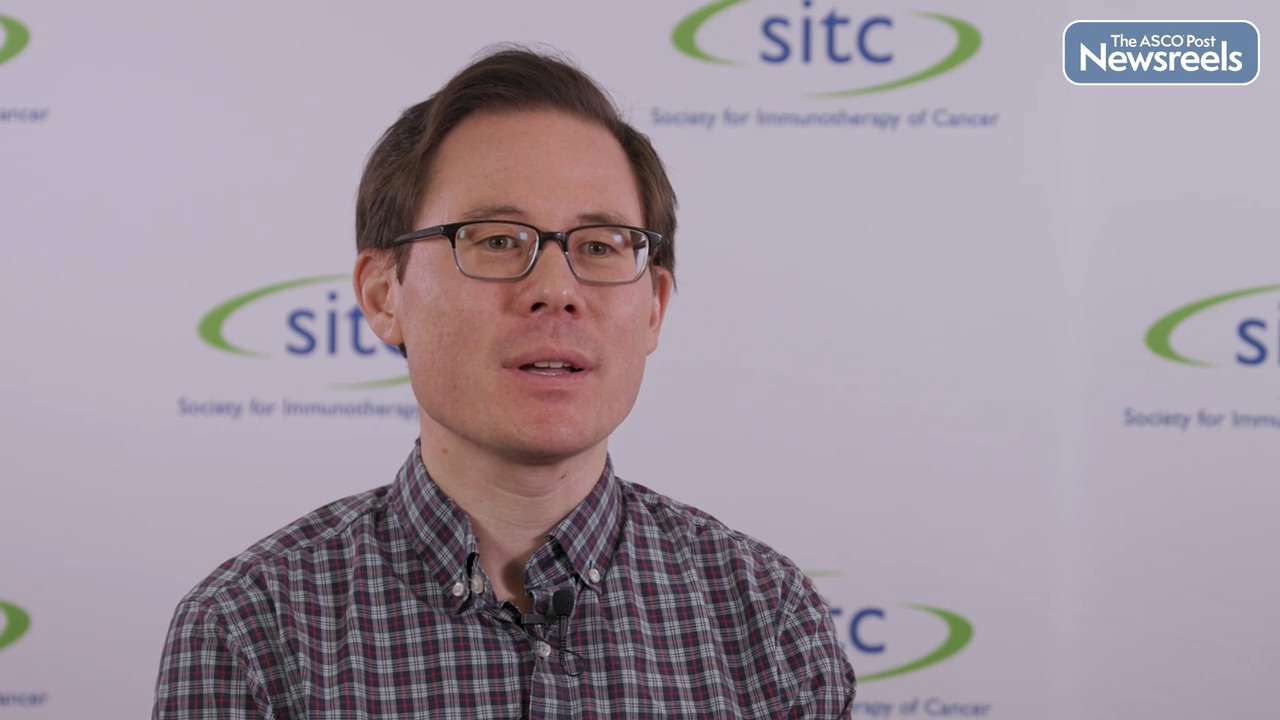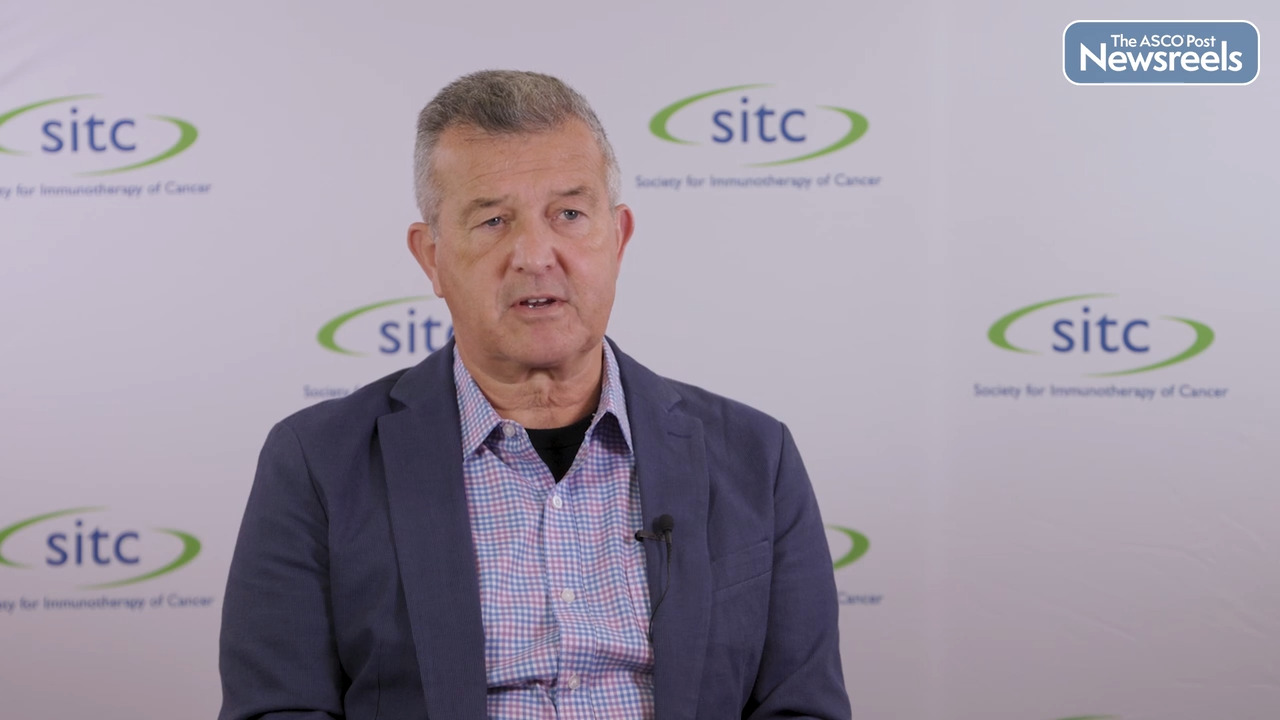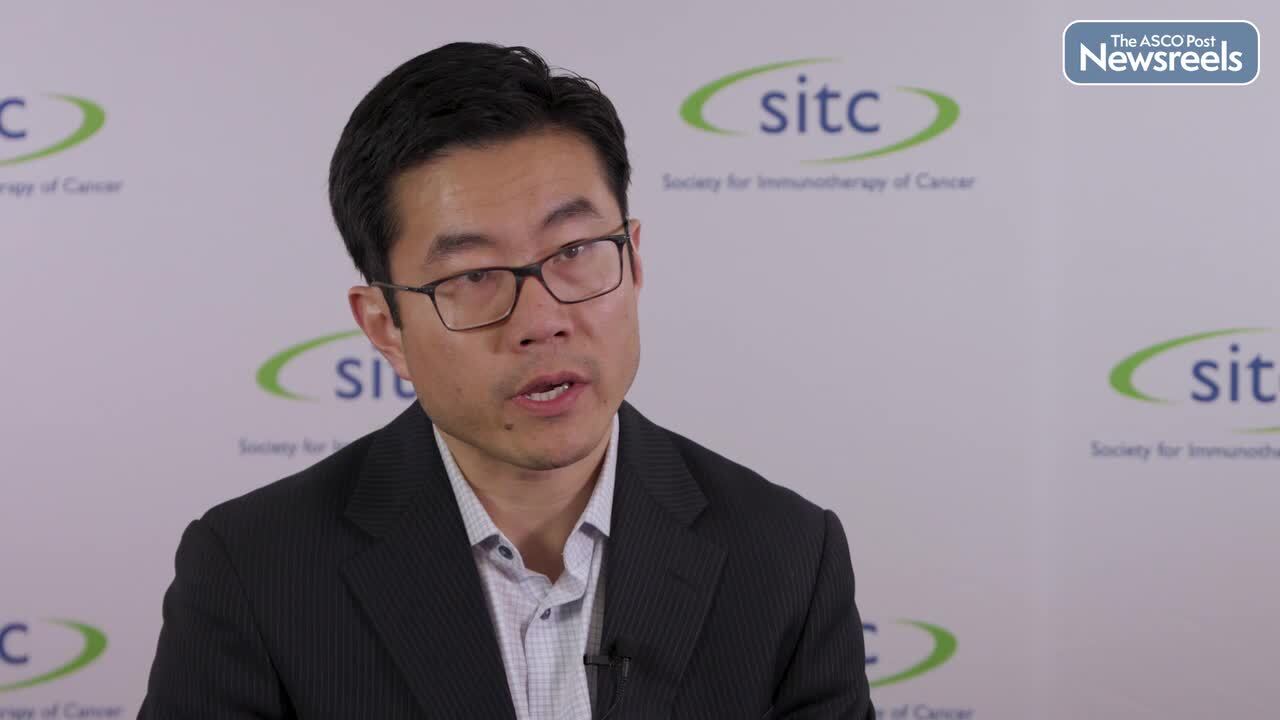Julia Tchou, MD, PhD, on Triple-Negative Breast Cancer: Radiation Boost Plus Pembrolizumab
SITC 2022
Julia Tchou, MD, PhD, of the University of Pennsylvania, discusses preliminary results of the phase Ib/II BreastVax study, which suggested a single preoperative pembrolizumab dose plus a tumor-targeting radiation boost may result in pathologic response in patients with early-stage triple-negative breast cancer (Abstract 644).
Transcript
Disclaimer: This video transcript has not been proofread or edited and may contain errors.
The reason why we think a single dose of Pembrolizumab plus a tumor-targeted radiation may work in patients with early-stage breast cancer is that we know that immune checkpoint inhibitor alone or as monotherapy does not work in breast cancer. We also know that we have to combine pembrolizumab with an immune stimulant such as chemotherapy, but because we really want to try to omit chemotherapy to deescalate treatment in this special population, which is early-stage breast cancer, we think that a single fraction of radiation boost may be effective as a combination with a single dose of Pembrolizumab prior to surgery.
The study is a window of opportunity study. We are evaluating three treatment arms prior to surgery. The arms one and two to examine the combination of radiation boost plus pembrolizumab. The difference between arm one and two is the sequence of the timing of the radiation versus pembrolizumab.
Arm one is radiation boosts first followed by pembrolizumab. Arm two is Pembrolizumab first, followed by radiation boost. And then the third arm is to evaluate pembrolizumab alone. That's the treatment. The three arms that we want to evaluate. And we want to look at this in patients with early-stage breast cancer without high risk features so that we can test whether this radiation combination with immunotherapy may be effective in this patient population.
So far, 13 patients have completed the study and 10 patients have triple-negative breast cancer. Among the 10 patients with triple-negative breast cancer, we observe that three patients have major response defined as tumor shrinkage. Of the three patients with significant tumor shrinkage, the tumor shrunk by about 80% or more. And in the three patients, one patient had complete pathologic response after a single dose of Pembrolizumab and one single tumor-targeting radiation given prior to surgery.
The next step is to continue to enroll patients into this study because this is considered still a very small sample size. We want to enroll more patients so that we can confirm our preliminary results, and we want to do additional molecular analysis to identify biomarkers associated with treatment response so that we can get to the next step to open a second study that look at patients with even earlier-stage disease.
Related Videos
The ASCO Post Staff
Michael A. Postow, MD, of Memorial Sloan Kettering Cancer Center, discusses new findings on the correlation between CD8 cell PET imaging with zirconium-89–crefmirlimab berdoxam and CD8 cell immunohistochemistry in patients with advanced cancer receiving immunotherapy. Noninvasive CD8 PET scanning with crefmirlimab berdoxam permits whole-patient, longitudinal CD8 assessment, which is currently under investigation as a biomarker for immunotherapy responsiveness and may be a useful tool for immunotherapy development and clinical management (Abstract 1472).
The ASCO Post Staff
Talal El Zarif, MD, of Dana-Farber Cancer Institute, and Abdul Rafeh Naqash, MD, of Stephenson Cancer Center at The University of Oklahoma, discuss the results of their cohort study of patients living with HIV and metastatic non–small cell lung cancer, who are often underrepresented in clinical trials, and the safety and efficacy of treating this unique population with immune checkpoint inhibitors (ICIs). The data showed that patients living with HIV and lung cancer had similar toxicity profiles and clinical outcomes as did those who did not have HIV and received ICIs (Abstract 437).
The ASCO Post Staff
Jonathan Chen, MD, PhD, of Massachusetts General Hospital, discusses “immunity hubs” that interact with a reservoir of stem-like CD8 T cells and appear to be associated with subsequent response to anti–PD-1 blockade in patients with non–small cell lung cancer. Hybrid hubs, Dr. Chen says, are a favorable class of immunity hub notable for CD8-positive and TCF7-positive cells, as well as CCL19 expression (Abstract 956).
The ASCO Post Staff
David Reardon, MD, of Dana-Farber Cancer Institute, discusses phase I/II results from the EOGBM1-18/ROSALIE study, which showed the EO2401 vaccine plus nivolumab generated systemic immune responses correlating with efficacy in patients with recurrent glioblastoma. Adding bevacizumab to this combination appeared to improve efficacy. (Abstract 642).
The ASCO Post Staff
Roger Li, MD, of the H. Lee Moffitt Cancer Center, discusses results from a phase II single-arm study of CG0070, a cancer-selective oncolytic adenovirus that creates mechanistic synergy with immune checkpoint blockade. In this trial, the virus was combined with pembrolizumab in patients with non–muscle-invasive bladder cancer that is unresponsive to bacillus Calmette-Guérin. At 3 months, 88% of the 35 patients enrolled achieved a complete response (Abstract 666).
